Tips for buy spotlight for stage lighting
- Illuminate Your Vision: Essential Tips for Buying Spotlight for Stage Lighting
- Understanding the Pivotal Role of Stage Spotlights
- Key Factors to Consider When Buying Stage Spotlights
- Assess Your Application and Venue Size
- LED vs. Traditional: The Modern Spotlight Choice
- Understanding Beam Angle and Optics
- The Importance of Color Temperature and CRI
- Dimming Capabilities for Smooth Transitions
- Control Protocols: DMX and Beyond
- Durability and Build Quality for Longevity
- Energy Efficiency and Heat Management
- Budget and Total Cost of Ownership
- Brand Reputation and After-Sales Support
- Advanced Features to Enhance Your Stage Lighting
- Gobos and Effects for Creative Storytelling
- Zoom and Focus Functionality for Dynamic Control
- Wireless Control Options for Streamlined Setups
- IP Rating for Outdoor and Demanding Environments
- Making Your Final Decision on Stage Spotlights
- Conclusion: Partnering for Brilliant Stage Lighting Solutions
- Frequently Asked Questions About Spotlight for Stage Lighting
Illuminate Your Vision: Essential Tips for Buying Spotlight for Stage Lighting
In the captivating world of live performance and events, lighting is more than just illumination; it's an art form that shapes perception, evokes emotion, and guides the audience's gaze. At the heart of this artistry lies the spotlight for stage lighting – a crucial tool for any stage designer or event producer. Choosing the right spotlights can elevate a production from good to unforgettable, providing precision, impact, and clarity. However, with an ever-evolving market brimming with diverse options, making an informed decision can be challenging. As LQE, a professional OEM/ODM stage lighting equipment manufacturer since 2008, we understand the nuances of this industry. This comprehensive guide is designed to equip you with the expert knowledge needed to confidently select the perfect spotlight for stage lighting, ensuring your investment truly shines.
Understanding the Pivotal Role of Stage Spotlights
Before diving into the specifics of purchasing, it's vital to grasp why the spotlight for stage lighting is so indispensable. Unlike wash lights that bathe an entire area in color, spotlights are designed for precision. They focus a concentrated beam of light onto a specific area or performer, drawing attention, highlighting key moments, and sculpting the visual narrative. From a single performer illuminated on a grand concert stage to a crucial prop in a theatrical drama, spotlights create emphasis and depth. Their ability to isolate and intensify makes them indispensable for dramatic effect, character emphasis, and visual storytelling in any live setting, from intimate theaters to vast arenas.
Key Factors to Consider When Buying Stage Spotlights
When you're ready to invest in a spotlight for stage lighting, a systematic approach ensures you choose fixtures that align with your specific needs and budget. Here are the critical factors:
Assess Your Application and Venue Size
The first step in selecting the right spotlight for stage lighting is to define its intended use and the environment it will operate in. Are you outfitting a small community theater, a large touring concert stage, a broadcast studio, or an outdoor festival? The throw distance – the distance from the fixture to the illuminated target – will heavily influence the required wattage and beam intensity. Smaller venues might benefit from compact, lower-power spotlights, while large concert stages demand powerful fixtures with a long throw. Consider the ceiling height, available rigging points, and overall footprint. LQE offers a diverse range of stage lighting equipment, including both powerful moving head lights and versatile static lights, suitable for applications across theaters, music concert stages, studios, and more.
LED vs. Traditional: The Modern Spotlight Choice
The debate between LED and traditional (e.g., tungsten, HID) sources is largely settled in favor of LED for most modern spotlight for stage lighting applications. LEDs offer significant advantages: they are far more energy-efficient, typically consuming 70-80% less power than incandescent fixtures for similar light output. This translates to substantial operational cost savings and reduced heat generation, improving performer comfort and extending the lifespan of other equipment. LEDs also boast an incredibly long lifespan, often exceeding 50,000 hours, compared to a few thousand for traditional lamps, drastically cutting maintenance and replacement costs. Furthermore, LED spotlights offer superior color mixing capabilities, allowing for a vast palette of colors without the need for external gels. LQE specializes in middle- and high-end digital LED stage lighting, leveraging this advanced technology to deliver superior performance.
Understanding Beam Angle and Optics
The beam angle is a critical specification for any spotlight for stage lighting, determining how wide or narrow the light spread will be. Narrower beam angles (e.g., 5-10 degrees) create highly focused, intense beams perfect for highlighting a single performer or object. Wider beam angles (e.g., 20-40 degrees or more) provide a broader coverage, useful for lighting a larger area or creating softer washes. Many modern spotlights, especially LED moving head lights, offer adjustable zoom and focus functionalities, allowing designers to dynamically change the beam angle on the fly, providing immense flexibility for different scenes and effects. Understanding the optical quality is also important, as good optics ensure a clean, even field of light without hotspots or aberrations.
The Importance of Color Temperature and CRI
Color temperature, measured in Kelvin (K), describes the warmth or coolness of white light (e.g., warm white around 2700K-3200K, cool white around 5000K-6500K). The choice depends on the desired mood and aesthetic. Equally crucial is the Color Rendering Index (CRI), a measure of how accurately a light source reveals the true colors of objects compared to natural light. For professional spotlight for stage lighting, particularly in theatrical, broadcast, or film applications, a high CRI (90 or above) is essential to ensure performers' skin tones and set colors appear natural and vibrant, preventing color distortion that can undermine visual quality. LQE's commitment to high-end lighting ensures excellent color fidelity.
Dimming Capabilities for Smooth Transitions
Smooth, flicker-free dimming is non-negotiable for professional spotlight for stage lighting. Poor dimming can lead to abrupt changes in intensity, visible flickering (especially problematic for cameras), and an unprofessional aesthetic. Look for spotlights that offer 16-bit dimming for ultra-fine control across the entire dimming curve. LED technology has significantly advanced in this area, offering seamless dimming from 0-100% without color shifts. Ensure the dimming is compatible with your control system to avoid issues during critical moments of a production.
Control Protocols: DMX and Beyond
The vast majority of professional spotlight for stage lighting fixtures are controlled using DMX512, an industry-standard digital communication protocol. Ensure your chosen spotlights are DMX-compatible and understand their channel assignments. For more advanced setups, consider fixtures that support RDM (Remote Device Management), an extension of DMX that allows for two-way communication, enabling technicians to remotely address, configure, and monitor fixtures from the console. Wireless DMX options are also gaining popularity, reducing cable clutter and simplifying setup, especially for complex or temporary installations.
Durability and Build Quality for Longevity
Stage lighting equipment, especially moving head lights, can endure significant wear and tear, whether from frequent setup and teardown, touring, or continuous use in a fixed installation. Investing in a robustly built spotlight for stage lighting is crucial for long-term reliability and safety. Look for high-quality materials, solid construction, and reliable internal components. LQE prides itself on manufacturing durable, high-quality, and long-lasting lighting solutions designed to withstand the rigors of professional use. Our production base, covering about 10,000 square meters, focuses on ensuring superior build quality.
Energy Efficiency and Heat Management
As mentioned, LED spotlights are inherently more energy-efficient. This not only reduces electricity bills but also minimizes the thermal load on the venue's HVAC system. Effective heat management within the fixture itself is vital for extending the lifespan of the LEDs and ensuring consistent performance. Good quality LED spotlights will incorporate advanced cooling systems, often with quiet fans or passive heat sinks, to dissipate heat efficiently. Consider fan noise if the spotlights will be used in quiet environments like theaters or studios.
Budget and Total Cost of Ownership
While the initial purchase price of a spotlight for stage lighting is a significant consideration, it's essential to look at the total cost of ownership. Higher-quality LED fixtures, though potentially more expensive upfront, can offer substantial savings over their lifetime due to lower energy consumption, minimal lamp replacements, and reduced maintenance. Factor in potential repair costs, accessory requirements (e.g., clamps, safety cables, cases), and energy savings when evaluating your budget. LQE is committed to providing first-class modern stage lighting equipment while maintaining the best value and cost-effectiveness in the industry.
Brand Reputation and After-Sales Support
Choosing a reputable manufacturer for your spotlight for stage lighting can save you headaches in the long run. A strong brand typically signifies a commitment to quality, reliable performance, and excellent after-sales support. LQE, with its founding in 2008, 80 national patents, and dedication to R&D, has established itself as a trusted partner in the industry. Look for manufacturers that offer comprehensive warranties, accessible technical support, and readily available spare parts. Good customer service ensures that any issues can be quickly resolved, minimizing downtime and protecting your investment.
Advanced Features to Enhance Your Stage Lighting
Beyond the fundamental considerations, certain advanced features can significantly enhance the versatility and impact of your spotlight for stage lighting:
Gobos and Effects for Creative Storytelling
Many modern spotlights, especially moving head spot fixtures, include slots for gobos – stencils that project patterns, textures, or logos onto the stage. These can range from subtle atmospheric effects like clouds or rain to bold graphic projections that define a space or reinforce a brand. Some advanced fixtures also offer animation wheels, prisms for multiplying beams, and iris diaphragms for precise beam shaping, allowing for immense creative control over your stage lighting equipment.
Zoom and Focus Functionality for Dynamic Control
The ability to remotely adjust the zoom and focus of a spotlight for stage lighting is a game-changer for stage designers. It allows for quick adjustments to beam size and sharpness without needing to physically access the fixture, making it invaluable for adapting to different scenes, performer positions, or changes in stage layout during a show. This feature is particularly common in advanced moving head spotlights and offers unparalleled flexibility.
Wireless Control Options for Streamlined Setups
For certain applications, especially those involving complex rigging or temporary installations, wireless DMX control can simplify setup and reduce cable clutter. While not suitable for every scenario, integrating wireless control into your stage lighting equipment can provide greater flexibility in fixture placement and faster deployment times, particularly beneficial for touring productions or outdoor events where cabling can be challenging.
IP Rating for Outdoor and Demanding Environments
If your spotlight for stage lighting will be exposed to the elements, such as in outdoor concerts, festivals, or architectural installations, an appropriate IP (Ingress Protection) rating is essential. An IP65 rating, for example, indicates protection against dust ingress and low-pressure water jets from any direction, making the fixture suitable for outdoor use. Always check the IP rating for any fixture intended for non-indoor environments to ensure it can withstand specific weather conditions.
Making Your Final Decision on Stage Spotlights
The process of choosing the right spotlight for stage lighting is an investment in your production's success. By carefully evaluating your specific needs, understanding the technological advancements in LED lighting, and considering factors like beam control, color accuracy, durability, and total cost of ownership, you can make an informed decision. Remember to prioritize quality and reliability, as these will ensure your lighting equipment performs consistently show after show. LQE is dedicated to helping stage designers and producers realize their vision with high-quality, long-lasting, and cost-effective lighting solutions.
Conclusion: Partnering for Brilliant Stage Lighting Solutions
The right spotlight for stage lighting can truly transform a performance, shaping atmosphere and directing attention with stunning precision. From the initial conceptualization to the final dazzling effect, every detail matters. By following these expert tips, you're well-equipped to select spotlights that not only meet your technical requirements but also ignite your creative vision. As a leader in the LED stage lighting industry, LQE offers a comprehensive portfolio of middle- and high-end digital stage lighting equipment designed for exceptional performance and reliability. Our commitment to innovation, quality, and unparalleled customer service makes us the ideal partner for your next project. Explore our range of moving head lights and static lights, and let us help you achieve your most ambitious stage lighting goals. Your vision deserves to be illuminated with the best.
Frequently Asked Questions About Spotlight for Stage Lighting
Q: What's the main difference between a spotlight and a wash light?
A: A spotlight produces a narrow, concentrated beam of light to highlight specific areas or performers. A wash light, conversely, creates a broad, diffuse beam designed to evenly illuminate a large area with color or general light. Both are essential components of comprehensive stage lighting equipment, serving different but complementary functions.
Q: How many spotlights do I need for my stage?
A: The number of spotlights needed varies greatly depending on the stage size, the complexity of the production, the desired effects, and the number of performers. For a basic setup, you might need a minimum of 2-4 spotlights to cover key positions. Larger productions and venues often require dozens, sometimes hundreds, to achieve sophisticated lighting designs. Consulting with a professional lighting designer or LQE's experts can help determine the optimal quantity for your specific application.
Q: Can I use spotlights outdoors?
A: Yes, but only if they have an appropriate IP (Ingress Protection) rating. For outdoor use, spotlights need to be protected against dust and moisture. An IP65 rating or higher is generally recommended for fixtures exposed to rain or spray. Always check the manufacturer's specifications to ensure the spotlight is rated for outdoor environments before deployment.
Q: What is DMX control in stage lighting?
A: DMX512 (Digital Multiplex) is the industry-standard communication protocol used to control virtually all modern professional stage lighting equipment, including spotlights, moving heads, and wash lights. It allows a lighting console or computer to send digital signals to individual fixtures, controlling parameters like intensity, color, pan, tilt, zoom, and gobos, enabling complex and synchronized lighting shows.
Q: How do I maintain my stage spotlights?
A: Regular maintenance is crucial for extending the lifespan and ensuring consistent performance of your spotlight for stage lighting. This typically includes: regularly cleaning lenses and reflectors to prevent dust buildup, checking and cleaning cooling fans, inspecting cables and connectors for wear, verifying secure rigging, and performing occasional firmware updates. For moving head lights, ensuring moving parts are free of obstruction is also important. Always follow the manufacturer's specific maintenance guidelines.
Best led stage light manufacturers and supplier brands in us
Top concert stage lights Manufacturers and Suppliers in us
How to Choose the stage spot light manufacturer and supplier in us?
Where to Buy blind spot led light
1000w
Does LQE Offer Customized Stage Moving Light Solution?
An experienced R&D team can provide customized digital stage lighting OEM/ODM solution service to meet clients’ unique demands from global markets, such as customized CRI parameter, Ingress protection rating, effect, etc.
What Kind of Certificates You Offer?
All kinds of certificates could be offered by LQE digital moving light factory, which depends on customer’s required, different pricing plan for different approval.
Can I Have a Sample Order for an LED DJ Light?
Sure, sample order are welcome to test and check LQE quality. Mixed samples are acceptable.
Distributor
Do you offer OEM/ODM support for distributors?
Yes, as a professional OEM/ODM manufacturer, we support brand customization, including logo printing, packaging design, and even custom features based on project needs.
What are the advantages of becoming an LQE distributor?
Access to high-performance, patented lighting products
Competitive factory pricing and excellent profit margin potential
Strong R&D capabilities with 80+ national patents
Reliable production capacity: 100,000 units annually
Dedicated account manager to support your growth
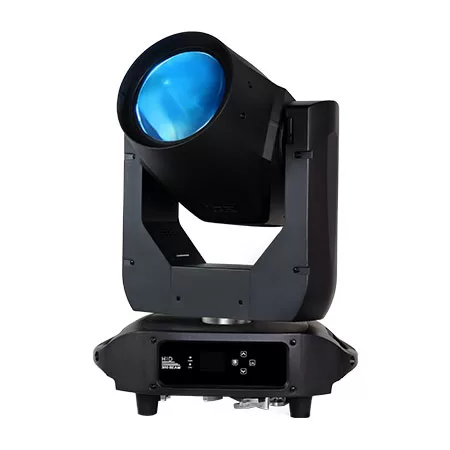
Stage Moving Head Beam Light LB380
It has a special optical design to ensure that the beam of light is full and the spot is uniform during projection. The unique streamlined appearance design makes it have a higher scanning speed and an automatic error correction function.
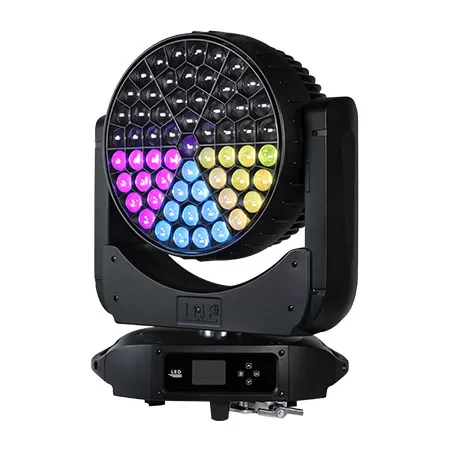
1000w 61x40w RGBW Stage Moving Head Wash Light LW1000
1000W 61x40W LED RGBW Mulichips Moving Head Wash Lights with Zoom (5°–50°), Covering Large Range and Long Distance. Designed to deliver a 5°–50° ultra-large zoom range to achieve a greater wash effect, illuminating stages and events with stunning lighting effects.
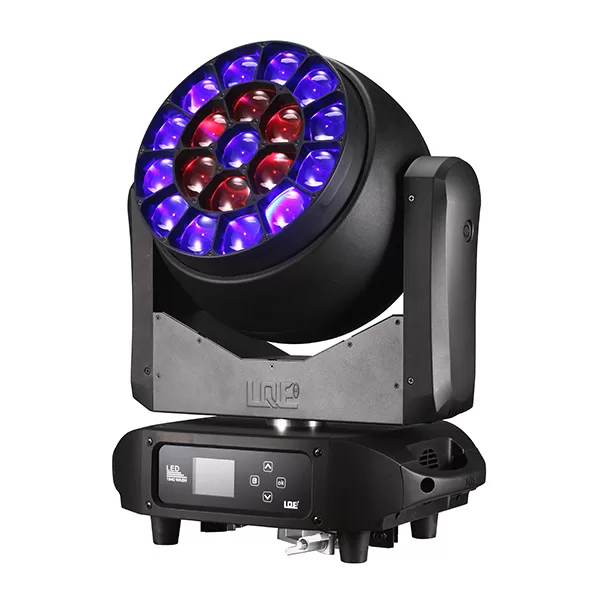
600w 19x40w RGBW Stage Moving Head Wash Light LW600 Zoom IP20
600W 19x40W LED RGBW Mulichips Moving Head Wash Lights with Zoom (5°–50°), Covering Large Range and Long Distance. IP20: Designed to deliver a 5°–50° ultra-large zoom range to achieve a greater wash effect, illuminating stages and events with stunning ring control lighting effects.
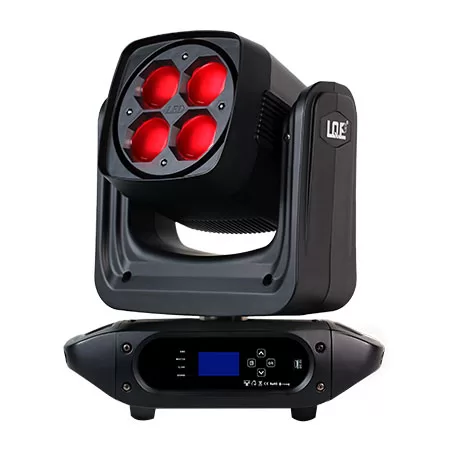
LED Moving Head Stage Wash Light LW200Z
The versatile moving head stage light provides a powerful lighting solution for theaters, concerts, and large outdoor performances. Suitable for theaters, TV stations, entertainment stages, and large outdoor performance scenes.

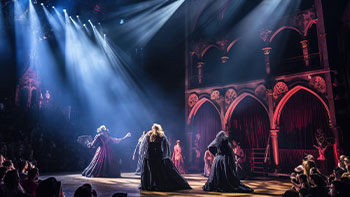
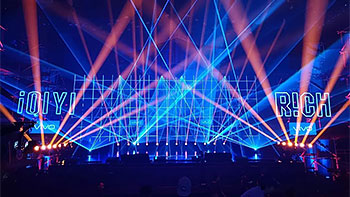
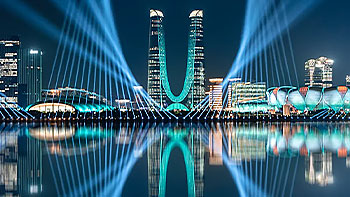
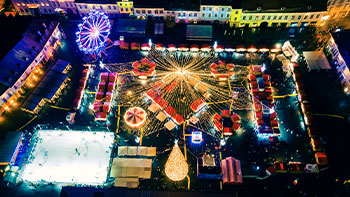
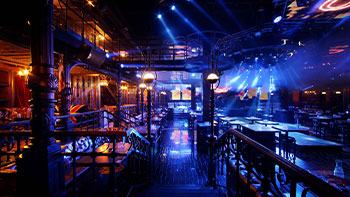
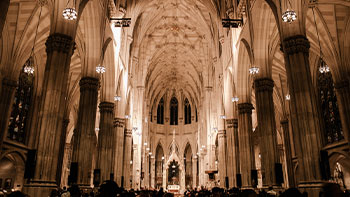






Linkedin
YouTube
Whatsapp: +8618924548390
TikTok